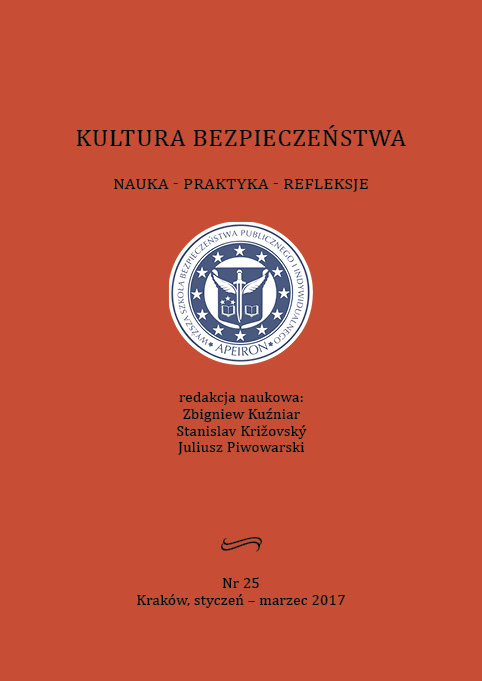Terroryzm samobójczy w interpretacji Islamu
Islamic interpretation of suicide terrorist attacks
Author(s): Konrad HarasimSubject(s): Islam studies, Philosophy of Religion, Studies in violence and power, Radical sociology , Hermeneutics, Sociology of Religion
Published by: Wyższa Szkoła Bezpieczeństwa Publicznego i Indywidualnego “Apeiron” w Krakowie
Keywords: suicide terrorism; martyr; The Holy Quran; hermeneutics of Islam;
Summary/Abstract: Most of the media reports and expert statements commenting the wave of terrorism concentrate their semantic on “Islamic terrorism”, especially “Islamic suicide attacks”. Although I am fully aware of the need to use mental shortcuts or generalizations, I would like to find the answer to the question: what explanation of suicide attacks does Islam provide? Islam condemns suicide a priori and suicide attacks bring shame to this religion, which identifies itself as a religion of peace, tolerance and love. At the same time Islam honours martyrs, thus, maybe contemporary terrorists are considered to be martyrs? Or maybe they are only a strategic tool of modern war tactic? What do the scholars of Islam say about it, how do they interpret terrorist attacks? Are their authors Muslim in terms of Koran? Does Koran differentiate between martyrs and terrorists? Suicide bombers do not treat themselves as victims. They treat themselves as martyrs whose deeds should motivate their brothers in faith to take action as well. They consider themselves to be martyrs, but Islam denies their martyrdom. However, religious rules are no longer valid in the face of war, not only the current one.
Journal: Kultura Bezpieczeństwa. Nauka-Praktyka-Refleksje
- Issue Year: 2017
- Issue No: 25
- Page Range: 70-84
- Page Count: 15
- Language: Polish

